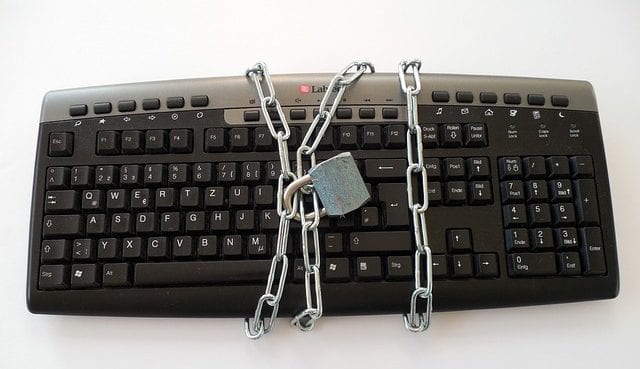What Is a Password?
American astronomer Clifford Stoll once said: “Treat your password like your toothbrush. Don’t let anybody else use it, and get a new one every six months”, and he couldn’t have been more right. With the security breaches, data thefts, and cyber crimes we’re witnessing nowadays, passwords are not something online users should underestimate or take lightly.

What Is a Password?
Why Need a Password?
Admit it, you’ve at least tried once in your life to access someone’s password just for the fun of it. Little did you know that there are hackers all over this world who do that for a living. Feeding on the data they steal from users is how they make money. They later blackmail you to grant you ownership over your own data or simply sell your personal information to whom might find it valuable. But, you wouldn’t have to go through all of that if you have a secure and strong password for all your accounts.
Data breaches are more common than ever these days. Security is not low maintenance people! But for some reason, online users don’t take the necessary security measures to protect their data. Perhaps, they think they’re too ordinary to be targeted by hackers. “What valuable information could I possibly have to be subject to data theft?” thought every regular online user. Our response to your speculation is “you never know.” You really never know what they’re looking for, which is why it’s always best to be on the safe side, literally!
Massive Breaches
Even industries and organizations with well-encrypted and protected passwords are at risk. Although a password reset eliminates the bulk of the insecurity, the damages that a breach causes the companies, insurers, and account holders are drastic. Just take Yahoo and Marriott International as examples. Back in September 2016, Yahoo announced it was a victim of the biggest data breach in history. The attackers managed to get their hands on the real names, email addresses, dates of birth and telephone numbers of 500 million users. According to the company, the majority of the passwords involved were compromised by using a strong and robust bcrypt algorithm.
Similarly, in November 2018, Marriott International announced that cyber thieves have stolen data from approximately 500 million customers. According to the New York Times, a Chinese intelligence group was behind the attack in an attempt to gather data on US citizens. The group of attackers was able to access contact info, passport number, Starwood Preferred Guest numbers, travel information, and other personal information.
What is Password?
A password is an access control procedure commonly used on all digital devices and computing appliances. In other words, it is a standard security mechanism that prevents unwanted and unauthorized access by random users. It consists of a secret passphrase that can be alphabetic, numeric, alphanumeric and symbolic characters or a combination of all. Generally speaking, a password is combined with a user name.
In the majority of cases, the user must provide both (username and password) in order to gain access to a system, account, network or just about anything that is password protected. Users are the ones in charge of creating their own passwords when asked. Typically, these passwords are separate for each different system or service used.
What Makes a Strong Password?
As we might have mentioned above, a password is needed to restrict access to a certain system, account or network to only those who know the password and are authorized to use it. However, many are those who utilize hacking tools to crack passwords and gain access to what they’re not supposed to as a result of a password’s weakness. This is why you must take your time and put some thought into the passwords you create.
This string of characters that you don’t pay enough attention to can save your data from being stolen one day. A strong password should be between eight and 24 characters long. Also, it should include at least one capital letter, one number, and one special character. Security experts advise users to refrain from using wordy passwords for they are more easily guessed or hacked.
How to Protect Yourself Online – With Passwords
Passwords are typically designed to only be known and retrieved by the user who created it in the first place. These passwords allow that particular user access to a device, application, website, or account. And as we mentioned above, having a strong password is necessary for your data protection. Without a secure one, you’ll be subject to hacking attempts, malicious attacks, and data theft.
Trust us, you don’t want to go down that road. We advise you to use a mix of different types of characters to make the password harder to crack. In case, you don’t think that is enough, you can follow the security measures we have outlined below. In order to stay safe and secure online, when it comes to your password, we advise you to do the following:
1. Create a Strong Password
First and foremost, you need a strong password, of course. For a strong one, head on over to BestPasswordGenerator and get a password that no hacker or cybercriminal can decipher. Use different passwords for everything to avoid successful hacking attempts. Additionally, you need to optimize your passwords so that they are impossible to guess. We recommend that you don’t resort to using birthdays, relative names, pet names and other easy to guess combinations.
2. Change your Password
This is something you should do every 6 months. Who knows how many people have figured out your password throughout that time. Although it’s easier to just follow the one size fits all strategy, using the same password for all your accounts is something we don’t advise you to do.
3. Change your Security Information
This step is very important. Even though hackers might not be able to get your account’s password, they can still gain access to some security information like the question and answer part. Change it, we cannot stress the importance of periodically changing your security information enough.
4. Use a VPN
While Public WiFi seems like a good idea, we assure it’s not. As harmless as it may seem, accessing the internet through public WiFi makes you susceptible to online threats and attacks. Public WiFi has no encryption whatsoever. This means that anyone connected to the same WiFi as you can read the data you are transmitting. Scary isn’t it?
However, if you must use Public WiFi for whatever reason that is, you better use a VPN. A reputable VPN will make using public WiFi secure. That way, your VPN ensures the encryption of your data ad you can put your mind at ease. Check out best VPN for public WiFi for more insight on the matter. We recommend ExpressVPN; it’s the best possible version of a VPN you could possibly ask for. For more service providers, check out the table below.

- Best for streaming and privacy
- High speed servers in 160 VPN locations
- Works for Netflix, BBC iPlayer, Amazon Prime Video, and Hulu
- 24/7/ live chat support
- 3 extra months free on annual plan

- UltraHD streaming
- Free Smart DNS proxy
- Unblocks all major streaming services
- Limited Time 72% Discount

- Unlimited VPN connections
- Over 1000 servers
- Ad-blocking feature available
- User-friendly application
- Exclusive Smart VPN feature
- Standalone Smart DNS subscription available
- Extra security features
- Extensions for Firefox and Chrome
- Split-tunneling available
5. Use a Password Manager
A password manager is a pretty helpful tool that allows you to keep all your password protected. A password manager serves various purposes. Not only does it allow you to store your passwords, but it also enables you to keep other sensitive data in a secure virtual vault. Password managers are simply an essential privacy tool. Some of the most popular password managers include:
- Keeper
- Blur
- Sticky Password
- Password Boss
- Last Pass
- Dashlane
- 1Password
How Do Hackers Crack Passwords?
Did you know that it takes a hacker 0.29 milliseconds to crack your passwords if it’s anywhere near the simplicity of “abcdefg“? You would be even more surprised to learn that complicated passwords are getting cracked faster these days. What hackers are cracking in a matter of months used to take years.
This is the procedure that follows: First, hackers try the most common password that comes to their minds. Then, they move on to passwords with the least amount of characters. A short password might take a few seconds to crack, whereas a long one can cause the hacker a massive headache.
Passwords – Final Thoughts
Are you really who you say you are? A password can figure that out in a split second. It’s the most common way to prove that you are who you claim to be when it comes to password-protected areas. You should know that a password is the one thing that prevents unauthorized access to your data and keeps hackers at bay. So, why should you risk losing the protection that a password provides you just because you’re too lazy to create a decent one? Stay safe, invest in your passwords.
Remember, the longer that passwords are, the longer time it will take for the hackers to get the right combination and get you all figured out. Using public WiFi to work with financial data or bank accounts is a big no-no. Being online exposes you to a lot of temptations, which you must not give into because simply they’re not worth it. Protecting your data with passwords is now as important as locking your front door with a key. If you follow this guide, we guarantee that you’ll be safe online no matter what.









